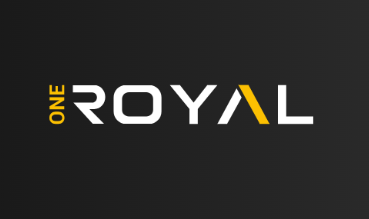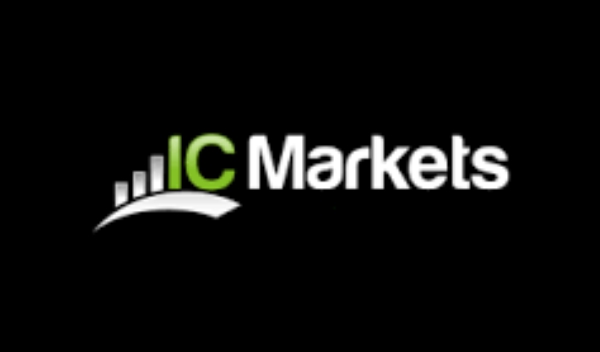The differences between retail and institutional forex account management lies in their respective scale, resources, trading strategies, risk management, regulatory environments, and technology. With a daily trading turnover of more than $6 trillion, the forex market is one of the biggest and most liquid financial markets in the world. Retail and institutional traders are the two basic categories into which participants within this wide environment can be divided. Retail and institutional forex account management follows different goals, tactics, and administrative procedures. The key differences between retail and institutional forex account management will be examined in this article, along with their respective implications for scale, resources, trading tactics, risk control, regulatory frameworks, and technology.
Key Differences Between Retail and Institutional Forex Account Management
1. Scale of Operations
Management of Retail Forex Accounts
Smaller-scale trading is usually the norm for retail Forex traders. These traders, who frequently oversee accounts with values ranging from several hundred to several hundred thousand dollars, are either individual investors or small trading organizations. Lower trading volumes in retail accounts can make it more difficult to negotiate advantageous spreads and gain access to premium trading opportunities. Retail traders frequently join the market in order to fulfill personal financial objectives, such capital growth or additional income.
Institutional Forex Account Management
On the other hand, larger organizations like banks, hedge funds, and asset management companies are involved in institutional Forex account management. These organizations frequently oversee accounts worth billions or even millions of dollars. Because of the sheer size of their business, institutional traders can make big trades with little effect on the market. Because of their ability to trade in large quantities, they frequently have access to better pricing, spreads that are smaller than those of regular traders, and exclusive trading opportunities.
2. Resources and Expertise
Retail Traders
Retail traders frequently have less funding available to them. Usually, they depend on brokers’ instructional resources and internet trading platforms. Even though a lot of retail traders take the time to learn about forex trading, there is a wide range of experience. Their inability to obtain sophisticated trading tools or carry out in-depth market analysis may be hampered by their lack of resources.
Institutional Forex Account Management
Conversely, institutional traders have access to a multitude of resources and knowledge. Teams of analysts, economists, and traders are frequently assigned to work on strategy creation and market research. These organizations use advanced technology and tools to evaluate market circumstances, do quantitative analysis, and backtest tactics. Moreover, private data feeds and analytics are frequently accessible to institutional traders, giving them a competitive advantage.
3. Methods of Trading
Strategies for Retail Trading
From swing and day trading to long-term investing, retail traders often use a range of trading tactics. Technical analysis is widely used by retail traders, who base their trading decisions on chart patterns and indicators. To assess economic indicators and geopolitical developments that can affect currency prices, others may employ fundamental analysis.
Retail traders frequently use popular trading tactics, such as scalping, where they place a lot of little trades to take advantage of tiny price swings, or they follow trends. However, social trading platforms and market sentiment can have a significant impact on retail strategies, and they might not always be in line with sensible risk management procedures.
Institutional Forex Account Management
On the other hand, institutional traders frequently use more sophisticated trading techniques. For the purpose of finding patterns and placing trades based on statistical probabilities, they might employ quantitative trading algorithms that examine big datasets. Another trend that is more common among institutional traders is algorithmic trading, in which trades are automatically carried out according to predetermined standards.
Institutional strategies can also use multi-asset strategies, which enable them to diversify portfolios beyond Forex across different asset classes. Institutions can take advantage of wider market trends and manage risk more skillfully thanks to this diversification.
4. Managing Risks
Retail Risk Management
Retail traders may use varying approaches to risk management. It’s possible that a large number of retail traders undervalue risk management or lack the resources necessary to put successful ideas into practice. Retail traders frequently alter position sizes according to their risk tolerance and implement stop-loss orders to limit losses. Emotional trading, however, may result in snap judgments that jeopardize these risk control initiatives.
Institutional Risk Management
Because there is significant capital involved, risk management is a top priority for institutional traders. The trading activities of these businesses are generally governed by clearly defined risk management frameworks and procedures. Institutional traders use a range of risk mitigation tactics, such as hedging strategies, stress testing to determine the impact of unfavorable market conditions, and diversification across currencies and asset classes.
Furthermore, Value-at-Risk (VaR) metrics are frequently used by institutional traders to calculate capital requirements and estimate possible losses. Strict risk management procedures are prioritized since they safeguard the institution’s resources and increase stakeholder and client confidence.
5. Regulatory Environment
Retail Forex Regulation
Regulation of retail forex trading is governed by laws that differ greatly between states. Regulatory organizations in numerous locations enforce limitations on trading techniques, leverage, and the kinds of products available for retail clients. For instance, to shield retail traders from undue risk, the European Securities and Markets Authority, or ESMA, has set limits on leverage within the EU.
Since some brokers might not follow best practices or even operate unethically, retail traders may also have issues with the transparency and integrity of brokers. Because of this, retail traders need to make sure brokers are operating inside a regulated framework by doing extensive due diligence before choosing a broker.
Institutional Forex Regulation
While institutional forex trading takes place in a regulated setting, the regulatory frameworks may not be the same as those that apply to retail trading. Because of the size and complexity of their business, institutional traders frequently traverse more complex regulatory environments. Additional rules pertaining to capital adequacy, reporting guidelines, and compliance protocols might apply to them.
Furthermore, institutional firms frequently have specialized compliance departments to guarantee that regulatory duties are met. This degree of examination improves the institution’s standing in the financial markets and reduces the danger of regulatory infractions.
6. Technology and Trading Platforms
Retail Trading Platforms
Typically, brokers provide trading platforms to retail traders, which may include a variety of features and tools. MetaTrader 4 (MT4) and MetaTrader 5 (MT5) are well-liked systems that give retail traders access to indicators, charting tools, and automated trading features. In contrast to institutional traders, retail traders may have less features available to them. Limitations concerning slippage and trade execution speed may also affect retail traders, particularly in times of extreme volatility. The efficiency and general trading experience may be impacted by a reliance on external systems.
Institutional Trading Technology
Institutional traders make use of bespoke platforms with a feature set specifically designed to meet their demands, as well as cutting edge trading technologies. These platforms give institutions the ability to execute trades precisely by offering real-time data feeds, sophisticated analytics, and risk management capabilities. Direct market access (DMA) minimizes costs and maximizes market effect for institutional traders by enabling them to execute large orders directly without the need for middlemen.
Moreover, a lot of institutional traders use high-frequency trading and algorithmic trading, which call for complex technological infrastructure. This focus on technology improves trading efficiency and enables institutions to respond quickly to changes in the market.
7. Objectives and Time Horizons
Retail Trader Objectives
Retail traders have a wide range of goals, many of them are based on personal financial aspirations. While some retail traders pursue long-term financial appreciation, others may focus on short-term gains. Retail traders may have different time horizons: day traders may concentrate on intraday changes, while swing traders may maintain positions for a few days or weeks. Different levels of risk tolerance and trading behaviors may result from these differences in aims. Emotional highs and lows might affect retail traders’ decision-making and overall performance.
Goals of Institutional Traders
Institutional traders, on the other hand, usually have clearer goals that are in line with those of their stakeholders or clients. These goals could be centered on managing risk, preserving liquidity, and obtaining steady profits. Institutional traders typically adopt a long-term perspective, seeking to maximize returns over protracted timeframes while closely following stringent risk control procedures. Institutional traders use thorough research methods and disciplined trading techniques because they place a premium on performance and accountability, which eventually helps their clients.
Summary
There are key differences between retail and institutional forex account management, influencing how each group handles the forex trading market. Institutional traders make use of vast resources, cutting-edge technology, and strict risk management procedures, whilst retail traders work on a smaller scale and with varied degrees of experience. As they negotiate the intricacies of the forex market, prospective traders and seasoned market players alike must be aware of these variances. Traders can design strategies that complement their objectives and available resources and make well-informed judgments by acknowledging these distinctions.
Frequently Asked Questions
1. What are the differences between retail and institutional forex account management?
- Institutional traders are major organizations that manage substantial capital, such as banks or hedge funds, whereas retail traders are individual investors that trade smaller sums. Their trading capabilities, resources, and strategies are impacted by this disparity in magnitude.
2. How do institutional and retail traders differ in response to trading volume?
- Large volume executions by institutional traders can have a small impact on the market, which improves pricing and reduces spreads. Because they make smaller trades, retail traders frequently deal with greater spreads and possible slippage.
3. What kinds of trading methods are usually employed by retail traders?
- Using a combination of day trading, swing trading, and long-term investing, retail traders frequently apply both technical and fundamental analysis. They might also adopt prevailing tactics and market perceptions.
4. What risk-taking procedures do retail traders follow?
- Retail traders may set stop-loss orders and change position sizes based on personal risk tolerance, although practices can be varied and often influenced by emotions.
5. How is risk managed by institutional traders?
- Institutional traders employ sophisticated indicators like Value-at-Risk (VaR) and strategies like hedging and diversification as part of formal risk management frameworks.
6. What kind of technology do regular traders use to trade forex?
- Broker-provided trading platforms, such MetaTrader 4 or 5, are commonly utilized by retail traders as they provide fundamental tools and features for trading and analysis.
7. What kind of technologies do institutional traders employ?
- Institutional traders make use of sophisticated proprietary trading platforms that offer direct market access (DMA), real-time data, and analytics, enabling more accurate and efficient trade execution.
8. Are retail traders governed by any regulations?
- Yes, restrictions governing leverage, trading methods, and product kinds are applicable to retail traders and differ depending on the country. Selecting regulated brokers is crucial for retail traders.
9. Are regulations for institutional traders different?
- Yes, because institutional traders deal with higher sums of money, they must navigate more intricate regulatory frameworks. To oversee regulatory duties, they frequently have specialized compliance teams.
























